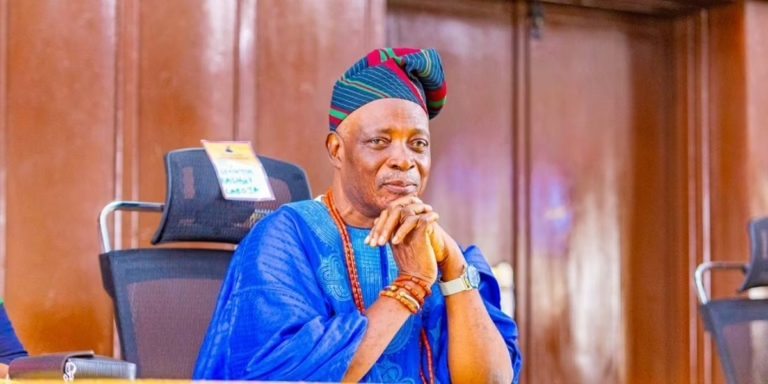Oba Rashidi Adewolu Ladoja, the Olubadan-designate, has addressed the ongoing dispute reportedly involving the Alaafin of Oyo, Oba Abimbola Akeem Owoade, and the Ooni of Ife, Oba Enitan Adeyeye Ogunwusi. He emphasized that the tension largely stems from the actions of their supporters rather than the monarchs themselves.
During a visit at his Bodija residence in Ibadan on Thursday, where he received the Olugbon of Orile-Igbon, Oba Francis Alao, and his wife, Oba Ladoja shared his perspective on the rivalry concerning traditional authority between the two kings.
He pointed out that the discord is fueled by the followers of both rulers, who often invoke historical narratives to justify their positions.
“It is important to understand that neither the Ooni of Ife nor the Alaafin of Oyo seeks to create division; rather, it is their adherents who stir up conflict,” he remarked.
Oba Ladoja further explained that these supporters tend to rely on selective interpretations of history, which can be subjective and not always reflective of present realities.
He clarified the distinct jurisdictions of the monarchs, stating, “The Alaafin does not govern Ile-Ife, just as the Ooni does not rule Oyo. Each has sovereignty within their own domain.”
To illustrate the outdated nature of some historical claims, he compared it to the colonial past of Britain and America, saying, “That history belongs to the past. Nowadays, if America sneezes, Britain catches a cold.”
Seeking to foster solidarity among Yoruba traditional rulers, Oba Ladoja appealed for the Olugbon’s assistance in uniting the monarchs across the region. “I call upon Oba Alao’s vast experience to help strengthen the bonds among Yoruba kings,” he said.
Reflecting on Ibadan’s significance within Yorubaland, the Olubadan-designate highlighted the city’s crucial role in preserving indigenous leadership titles, suggesting that without Ibadan’s influence, Yoruba rulers might have adopted the title of ‘Emir’ instead.
He underscored the historical importance of Ibadan in shaping the traditional governance system and stressed the need to focus on modernizing what remains of the once expansive Ibadan Empire.
“Ibadan’s position in this context is well recorded in history. Without its impact, the traditional titles of Yoruba monarchs would likely have been ‘Emir,'” he noted.
Oba Ladoja also revealed that efforts to modernize Ibadan’s traditional institutions are already underway, with all levels of traditional leaders, including Baales and Mogajis, playing vital roles.
“We have initiated the modernization process in Ibadan land, involving every traditional ruler, from Baales to Mogajis, who are essential to this transformation,” he explained.
He declared an end to the era of absentee Baales and Mogajis, emphasizing that these leaders must now reside within their communities and will be held responsible for any security lapses.
“The time of diaspora Baales and Mogajis is over in Ibadan. Should any security breach occur, these leaders will be held accountable,” Oba Ladoja warned.

















